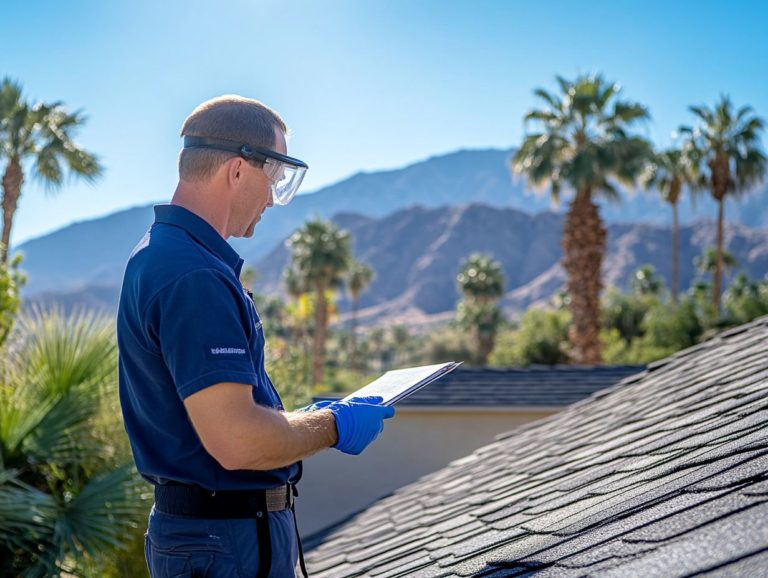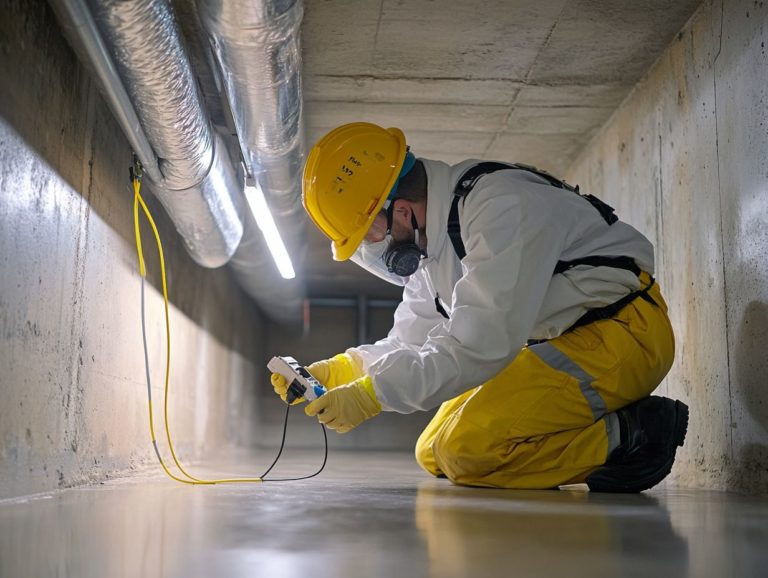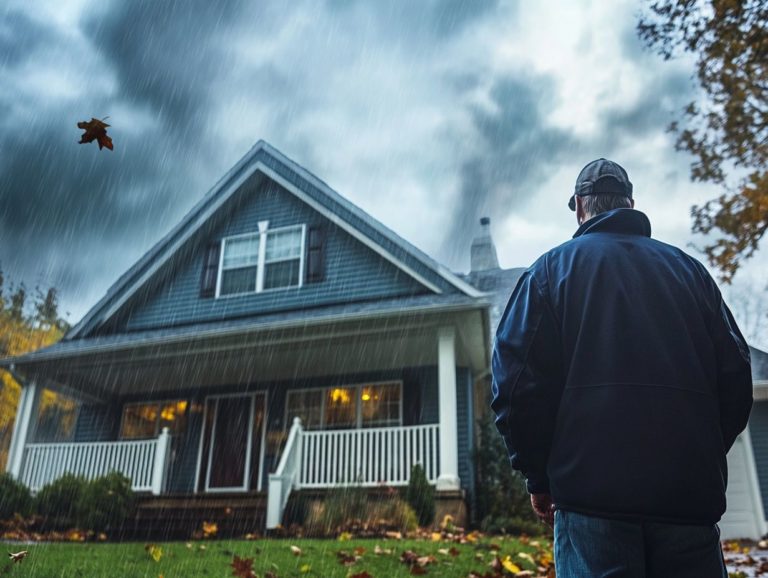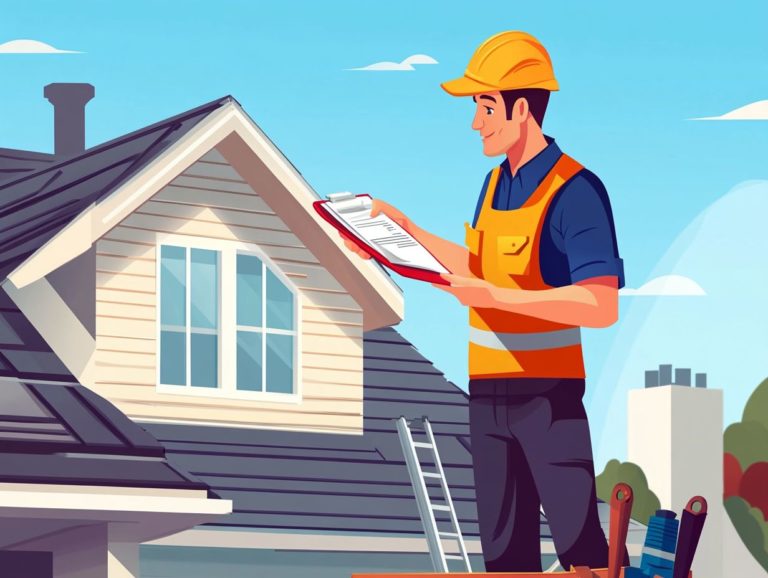Home Inspection Trends: What to Know
Purchasing a home is one of the most significant investments you will ever make. This underscores the importance of home inspections as an essential step in the process.
This article explores the critical role of home inspections, highlighting emerging trends and technologies while addressing common issues every buyer should be aware of.
You ll also find guidance on how to prepare for an inspection, select the right inspector, and interpret the findings with confidence.
Stay informed to ensure that your home purchase is not just a transaction but a wise investment that stands the test of time!
Contents
- Key Takeaways:
- The Importance of Home Inspections
- Trends in Home Inspections
- Common Issues Found in Home Inspections
- How to Prepare for a Home Inspection
- Choosing the Right Home Inspector
- Understanding Home Inspection Reports
- Future of Home Inspections
- Frequently Asked Questions
- What are some current home inspection trends to be aware of?
- Why is it important to stay informed about home inspection trends?
- Are there any new regulations or laws related to home inspections?
- What are some common issues that home inspections may uncover?
- How can home inspection trends improve the buying and selling process?
- Should I hire a home inspector familiar with the latest trends?
Key Takeaways:
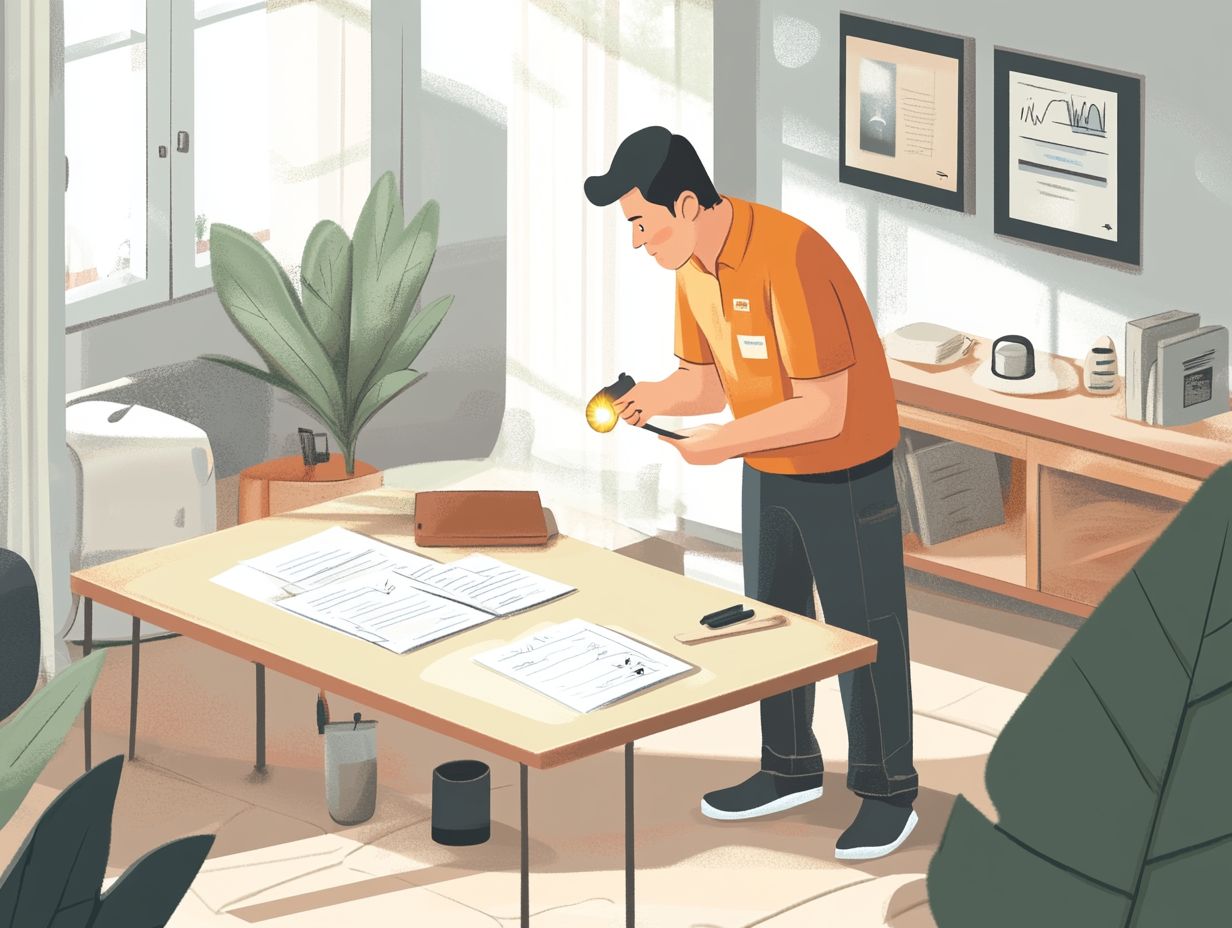
A home inspection is crucial for both buyers and sellers to identify potential issues before finalizing a transaction.
New technologies and techniques, as well as the impact of COVID-19, are changing how home inspections are conducted.
When preparing for a home inspection, take steps to address any known issues and choose a reputable and experienced inspector.
The Importance of Home Inspections
Home inspections are vital in the real estate market, ensuring you, as a homebuyer, are fully informed about the condition of a property before committing to one of the largest financial investments of your life.
With mortgage rates shifting and the demand for home inspections rising, understanding the home inspection process can profoundly affect both buyers and sellers, especially amid economic growth and an evolving housing landscape.
The Federal Reserve’s policies play a crucial role in these dynamics. It’s important to consider ancillary services that can enhance your understanding of potential home maintenance needs.
Why Home Inspections are Necessary
Home inspections are essential as they provide a comprehensive understanding of a property’s condition. They help uncover potential maintenance needs that might otherwise go unnoticed.
These evaluations ensure you won t be blindsided by expensive repairs or safety concerns after your purchase, offering peace of mind in what is typically the largest investment of your life.
A thorough inspection can reveal critical insights that serve as a powerful negotiating tool. This may enable you to lower your offer or request necessary repairs before sealing the deal.
By highlighting discrepancies in property conditions, home inspections empower you to make informed decisions, boosting your confidence in the real estate market.
Trends in Home Inspections
As you look ahead to 2024, advancements in technology are transforming the landscape of home inspections.
This evolution is driving a heightened demand for comprehensive home inspection services within the real estate market.
New Technologies and Techniques
New technologies and techniques in home inspections, such as thermal imaging and radon testing, provide comprehensive reports that pinpoint critical issues, including termite infestations and energy efficiency concerns.
By utilizing advanced tools like drone inspections and moisture meters, you can gain a clearer understanding of hard-to-reach areas with remarkable precision. Drones offer aerial views of roofs and chimneys, revealing potential damage that might otherwise go unnoticed.
Moisture meters are invaluable for detecting water intrusion before it escalates into serious mold problems. These sophisticated instruments streamline the inspection process, making it quicker and more thorough while equipping you with data-rich insights.
This helps you make informed decisions as a prospective homeowner, ensuring that the properties you consider meet your safety and quality expectations.
Impact of COVID-19

The impact of COVID-19 on home inspections has brought significant changes. You now rely more on technology to ensure safety and meet the evolving needs of homebuyers.
This approach prioritizes health and streamlines the inspection process. It makes inspections more efficient and accessible for everyone.
By integrating remote inspections and virtual walkthroughs, you can engage in the process from home. This alleviates the stress of being physically present.
Inspectors have found these methods allow for thorough evaluations without losing quality. They can now reach clients who faced geographical challenges.
Embracing these innovations fosters better interactions with inspectors. This enhances your overall experience during these unique times.
Common Issues Found in Home Inspections
During home inspections, you may encounter various common issues. These range from minor repairs to serious concerns that could affect your decisions.
Common issues include maintenance needs and critical factors like termite presence and radon levels. Being aware of these aspects helps you make informed choices.
Top Concerns for Homebuyers
Your primary concerns during the inspection process likely focus on property conditions and maintenance issues. These could lead to costly repairs later.
You might be particularly worried about the roof. A compromised roof can cause leaks and water damage.
Also, plumbing systems can raise red flags. Look out for leaks or outdated fixtures that may need immediate attention.
Don’t forget about electrical systems. Outdated wiring or insufficient outlets can pose serious safety hazards.
By addressing these concerns, you gain peace of mind. You can also use this information to negotiate a better purchase price.
How to Prepare for a Home Inspection
Preparing for a home inspection involves important steps. This ensures the process goes smoothly and any maintenance issues are discovered early.
Steps to Take Before the Inspection
Before starting your home inspection journey, take essential steps for a complete evaluation. This preparation helps identify potential issues early on.
- Research the inspector’s qualifications and experience. Make sure they have a good reputation for your home type.
- Look into the property’s history, including previous inspections and repairs. Seller disclosures can also provide valuable insights.
- Create a checklist of specific areas for the inspector to focus on. This leads to a more thorough assessment.
By investing time in these preparations, you can make informed decisions about your potential new home.
Choosing the Right Home Inspector

Selecting the right home inspector is crucial as a homebuyer. Their qualifications and experience greatly impact the reliability of the inspection.
Factors to Consider
When you’re choosing a home inspector, it’s essential to consider several key factors, including their qualifications, experience, and specialization in various types of inspections.
Look for inspectors who are certified by reputable organizations; these credentials often signal a higher level of expertise. Experience is equally important; an inspector with years in the field has likely encountered a broader array of issues and is better equipped to spot potential problems.
Specialization can be a game changer. Some inspectors focus exclusively on specific types of homes, such as historic properties or new constructions, which can greatly enhance the evaluation process.
To make an informed decision, don’t hesitate to ask for sample inspection reports and seek reviews from past clients. These firsthand experiences can offer unique insights into the inspector’s thoroughness and reliability, ensuring you choose wisely.
Understanding Home Inspection Reports
Understanding Home Inspection Reports is vital for you as a homebuyer. These documents provide insights into the property’s condition. They highlight potential issues that need your attention.
What to Look For
When reviewing home inspection reports, you should know exactly what to look for, focusing on critical issues that could affect the property’s condition and your investment.
Be vigilant about major red flags like water damage, structural problems, and outdated electrical systems, as these can signal costly repairs down the line.
Pay close attention to recommendations for immediate repairs or replacements since they could directly impact safety and functionality.
Ongoing maintenance needs, such as roof upkeep and HVAC servicing, are also crucial; understanding these will help you ensure the property remains in excellent condition for the long haul.
By keeping these elements in mind, you can make more informed decisions and effectively safeguard your investment.
Future of Home Inspections
The future of home inspections is set to undergo a remarkable transformation. Advancements in technology and new trends will fundamentally redefine how inspections are conducted and perceived within the housing market, making it essential to understand what to expect with a home inspection.
Predictions and New Trends

Exciting new trends are shaping the future of home inspections.
As the real estate landscape shifts, one standout trend is the rising popularity of virtual inspections. This innovation allows you to explore properties from the comfort of your own home, saving you time and providing unparalleled convenience, especially if you re relocating from afar.
Smart home technology is changing the inspection process. Buyers like you are increasingly attracted to homes equipped with energy-efficient systems and automated features, showcasing a preference for modern living.
You might also notice a growing inclination towards properties with thorough maintenance records. This shift indicates a heightened awareness of long-term living costs and sustainability, allowing you to make more informed decisions for your future.
Frequently Asked Questions
What are some current home inspection trends to be aware of?
Some current home inspection trends include increased use of technology, such as drones and thermal imaging, as well as a focus on energy efficiency and sustainability. To learn more, check out what to know about home inspection policies.
Why is it important to stay informed about home inspection trends?
Staying informed about home inspection trends can help homeowners and buyers understand the latest techniques and technologies used in the inspection process, as well as potential issues to look out for.
Yes, there are often new regulations and laws related to home inspections that vary by state. It’s important to stay updated on these changes to ensure compliance and protect yourself as a homeowner or buyer.
What are some common issues that home inspections may uncover?
Common issues that can be uncovered during a home inspection include structural problems, mold and moisture damage, electrical and plumbing issues, and safety hazards.
How can home inspection trends improve the buying and selling process?
Home inspection trends streamline the buying and selling process. They provide efficient and accurate inspections, allowing sellers to fix issues before listing, which is crucial in understanding the future of home inspections.
This helps buyers make informed decisions.
Should I hire a home inspector familiar with the latest trends?
Hiring a home inspector who knows the latest trends is absolutely essential. For a comprehensive overview, understanding the home inspection process protects your investment and ensures you’re making a solid choice.


